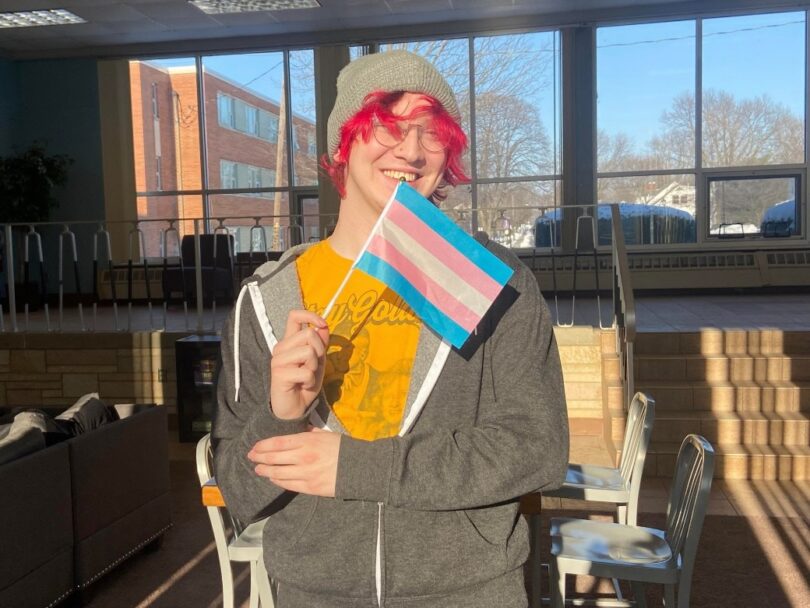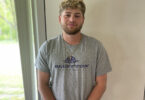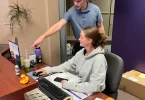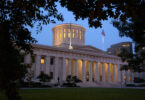As the Bluffton University campus becomes more diverse, students have been pushing for more conversation about gender identity and resources for transgender and non-binary students.

Heidi Mercer Wit file photo
Heidi Mercer, assistant professor of social work and one of the faculty advisors for Brave Space, said the current policies Bluffton has for transgender and non-binary students is ambiguous. She said whatever is being said by the American Disabilities Association is what the university is supposed to be considering, however, this is not always clear or agreed-upon.
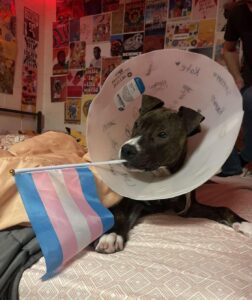
Service Dog Rose Supporting Transgender Students on Campus. Photo by Aspyn Rafac.
“There are three things on campus currently that we’re trying to get in alignment with various committees for: name changes, bathroom policies and open hours between girls and boys floors,” said Mercer.
However, some LGBTQ+ students on campus said it’s not enough. Basil Gates, a freshman art & writing major, gave his views on how current practices impact trans students.
“I had filled out the name change form on MyBluffton, but it only changed my name on MyBluffton, and did not change on my student email or on Moodle,” said Gates. “It took several weeks and eventually talking to Heidi before I was finally able to get it fixed.”
Gates admits that things like being the only transgender male on his floor and having to participate in the women’s track team makes him feel like he doesn’t belong. Gates also shared some of his ideas and wishes for making campus a more inclusive place, one of which is the addition of gender-neutral bathrooms.
“If you’re a trans male or female, you would at least feel safer going into a gender-neutral bathroom,”said Gates.
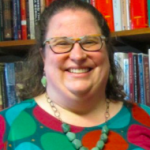
Jackie Wyse-Rhodes Wit file photo
Associate Professor of Religion Jackie Wyse-Rhodes is another faculty advisor for Brave Space.
“I think that training professors and staff so that they are given tools that they need to be supportive and inclusive in the classroom, including respecting and using correct names and pronouns is important,” said Wyse-Rhodes.
She thinks having another option for transgender students would be helpful to eliminate discomfort of living on the wrong floor. Wyse-Rhodes also named the need for accountability for hateful and harmful actions that happen on campus.
“We also need to make sure we’re having dialogue in which trans and gender non-conforming students’ voices and concerns are centered,” said Wyse-Rhodes. “For students who are both religious and trans or gender non-conforming, I would love to see more partnership across organizations like Campus Ministries and Brave Space.”
Mercer recently shared a list of resources for transgender and non-binary students outside of the ones provided on campus. These include the Equality Ohio Legal Clinic, the LGBTQ+ Spectrum of Findlay, and Equitas Health. Along with the resources was a message for LGBT+ students on campus:
“I commend the students for their grace and patience while we review our policies, specifically for how name changes are done in the system successfully,” said Mercer.
Editor’s note: This is the first in a series and additional perspectives and experiences will be shared in future editions of The Wit.

